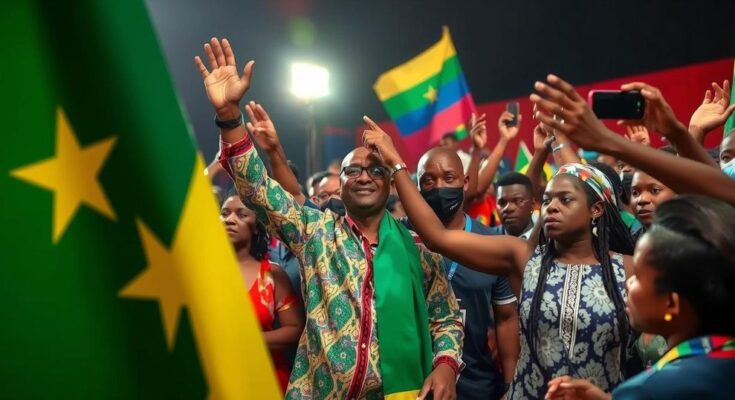Senegal’s ruling party Pastef claims a significant victory in parliamentary elections, potentially allowing President Faye to implement radical reforms. Opposition leaders have conceded as votes were counted, with official results expected soon. Despite a largely peaceful election, allegations of fraud surface from former President Sall. Faye’s administration faces ongoing challenges despite its youth-centric agenda.
In the recent legislative elections held in Senegal, the ruling party, Pastef, has claimed a significant victory, with most votes already counted. Government spokesman Amadou Moustapha Ndieck Sarre announced that Pastef has achieved a “large majority,” which would empower President Bassirou Diomaye Faye to advance his radical economic and social reforms initiated after taking office in March. Opposition leaders, including former Prime Minister Amadou Ba, acknowledged the loss while votes were still being tabulated. The formal election results are anticipated shortly thereafter.
The elections took place largely without incidents, though there were some sporadic clashes among the supporters of competing parties before the polls. The Pastef party has yet to disclose the exact number of seats won, needing a total of 83 in the National Assembly, which comprises 165 seats. Faye and his Prime Minister Ousmane Sonko’s previous legislative challenges stemmed from a parliament dominated by opposition factions.
Upon his election, President Faye, who is Africa’s youngest elected leader at the age of 44, pledged to implement a series of radical reforms aimed at economic development, social justice, and tackling corruption, appealing particularly to the youth demographic. Despite these ambitious goals, the administration will encounter ongoing challenges, such as high unemployment rates and fragile public finances. Detractors, including former President Macky Sall, who now leads an opposition coalition from abroad, have alleged substantial electoral fraud by Pastef without furnishing specific details.
Senegal’s recent parliamentary elections are significant as they reflect the political landscape shaped by President Bassirou Diomaye Faye and his party, Pastef. After facing considerable challenges within a largely opposition-dominated assembly, a decisive win would enable Faye to pursue his agenda more effectively. Given that the country is seeking drastic reforms and improvements in its socio-economic conditions, the election results could play a crucial role in determining Senegal’s political and economic future. The prior government under Macky Sall had left a contentious legacy, heightening the stakes of these elections.
The elections in Senegal signify a pivotal moment for the country’s governance, with Pastef’s claimed victory set to empower President Faye to push for substantial reforms. However, despite the anticipated advantages for the ruling party, challenges like unemployment and public financial instability remain prevalent. Observers will be closely monitoring both the official results and the responses from the opposition regarding allegations of electoral malpractice.
Original Source: www.bbc.co.uk




